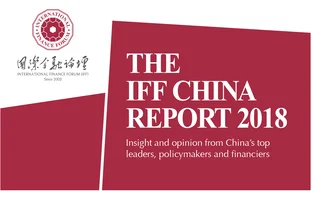
Bringing the benefits of globalisation to life
Marginalised countries and regions will be able to harness the prosperity of global co‑operation by participating in the Belt and Road Initiative, says former prime minister of New Zealand Jenny Shipley


The unveiling of the Belt and Road Initiative (BRI) by President Xi Jinping has renewed opportunities for many countries to benefit from globalisation. It is important, therefore, that the Silk Road International Association (SRIA) helps to bring meaningful life to this economic development.
New Zealand is proud to be the first market economy to support the Asian Infrastructure Investment Bank (AIIB). We believe that connected finance enabling economies to be a part of the real global economy is an extremely important concept at this time in global development. It is therefore important to create the financial architecture via the Silk Road Fund, the AIIB and other mechanisms.

Yet there are still some obvious issues to resolve. How should less developed countries be treated versus more developed ones? And how can new infrastructure strategies be supported? It is my hope that the SRIA can bring together banking institutions, asset managers, political leaders, academics, strategists and others, to really grapple with what it takes in business model terms to realise the outstanding strategic concept of the BRI.
Situated at the end of the Maritime Silk Road, New Zealand is very much a part of the BRI concept. I have also observed over the past 30 years that unless we develop strategies that deliver genuine inclusion then we all suffer unintended consequences. The BRI invites all parties to bring their minds, skills, experiences, resources, talent and finances to meet this extraordinary challenge.
Financial strategy will not be enough. Each of these projects must take into account complexities such as religious and cultural diversity, for example, within and between countries. I have observed worldwide that many populations will not tolerate solutions being imposed upon them. Again, I hope that the SRIA can share the experiences of corporations that have been able to function within different economies where culture, religion and political experiences vary. We must bring our talent and capital together to make a difference in achieving the mutually beneficial outcomes that the BRI and, in particular, the 2030 Sustainable Development Goals set out.
Unless we develop strategies that deliver genuine inclusion then we all suffer unintended consequences
We need to have ‘social licence’ to do the extraordinary things that we hope can be achieved. It is not a matter of mathematics; it is a matter of the human spirit. If we are to achieve the objectives the SRIA is capable of, then this can be a reality for our times – the BRI vision and the pragmatic capability of people who can look at opportunity and risk and can visualise how people everywhere can find their place within this development.
It will be very special if we can embrace social inclusion and secure that social licence to effectively lift people toward a better future. President Xi’s strategy for the BRI is one of the most significant initiatives either in the East or West that I have observed in my political career.
It is now a matter for all of us to make this a realised dream – so the reality of people’s lives along the BRI are as we would wish them to be – desirable, inclusive, culturally relevant and economically successful.
Only users who have a paid subscription or are part of a corporate subscription are able to print or copy content.
To access these options, along with all other subscription benefits, please contact info@centralbanking.com or view our subscription options here: www.centralbanking.com/subscriptions
You are currently unable to print this content. Please contact info@centralbanking.com to find out more.
You are currently unable to copy this content. Please contact info@centralbanking.com to find out more.
Copyright Infopro Digital Limited. All rights reserved.
As outlined in our terms and conditions, https://www.infopro-digital.com/terms-and-conditions/subscriptions/ (point 2.4), printing is limited to a single copy.
If you would like to purchase additional rights please email info@centralbanking.com
Copyright Infopro Digital Limited. All rights reserved.
You may share this content using our article tools. As outlined in our terms and conditions, https://www.infopro-digital.com/terms-and-conditions/subscriptions/ (clause 2.4), an Authorised User may only make one copy of the materials for their own personal use. You must also comply with the restrictions in clause 2.5.
If you would like to purchase additional rights please email info@centralbanking.com







